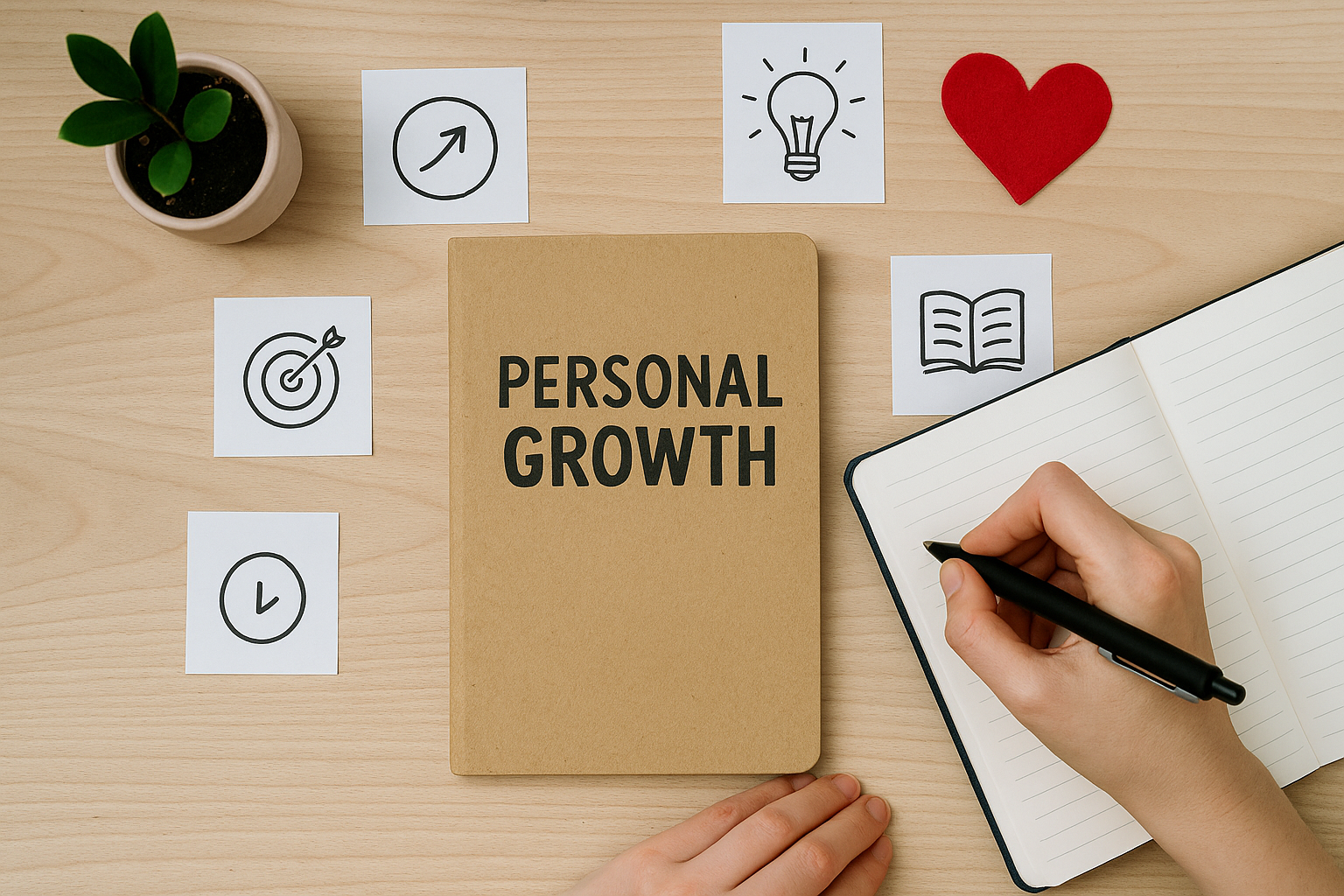Self-awareness is one of the most important skills for personal growth. When you become more aware of your thoughts, emotions, and behaviors, you gain the power to change, grow, and make better decisions. Yet for many people, self-awareness can feel vague or difficult to develop—especially in the beginning.
In this article, we’ll explore simple and effective techniques to help you build self-awareness, even if you’re starting from zero.
What Is Self-Awareness?
Self-awareness is the ability to observe yourself objectively. It means recognizing:
- What you’re feeling and why
- How your thoughts affect your actions
- How others perceive you
- What triggers your emotions or reactions
- Your strengths, weaknesses, and patterns
Self-awareness doesn’t mean judging yourself. It’s about noticing what’s happening internally and learning from it.
Why Self-Awareness Matters
Here’s what improving your self-awareness can do for your life:
- Help you respond calmly instead of reacting impulsively
- Clarify your goals and values
- Strengthen your emotional intelligence
- Improve communication and relationships
- Increase your confidence and decision-making skills
The more you understand yourself, the more control you gain over your life.
1. Start with Journaling
One of the best tools for beginners is daily journaling. It creates space to reflect and explore your thoughts and emotions.
You don’t need to be a writer. Just answer simple questions like:
- How am I feeling right now?
- What happened today that affected my mood?
- What am I thinking about the most?
- What did I do well today?
- What would I like to improve tomorrow?
Consistency matters more than perfection. Write freely, without worrying about grammar or structure.
2. Practice Mindful Moments
Mindfulness is the practice of paying attention to the present moment—without judgment.
Try this:
- Pause for one minute during your day
- Focus only on your breath
- Notice what thoughts arise
- Let them pass without holding on
The goal is not to stop your thoughts, but to notice them. These short moments of mindfulness strengthen your awareness over time.
3. Use the “Why” Technique
When you notice a behavior or reaction, ask yourself:
- Why did I feel that way?
- Why did I react like that?
- What triggered me?
Ask “why” at least three times to dig deeper. Example:
- I felt irritated.
- Why? Because my friend canceled plans.
- Why did that upset me? Because I was really looking forward to it.
- Why? Because I’ve felt lonely lately.
This technique uncovers the real reasons behind your feelings.
4. Observe Your Reactions in Real Time
Throughout the day, practice noticing how you respond to situations:
- What emotions come up when someone disagrees with you?
- How do you feel in certain environments?
- What body signals do you get when you’re anxious or tired?
You don’t need to change anything right away—just observe. You’ll start recognizing patterns you didn’t notice before.
5. Ask for Honest Feedback
Sometimes others can see things you miss. Ask people you trust:
- What’s one strength you see in me?
- What’s one area you think I could grow in?
- How do you experience me when I’m stressed?
Be open and curious—not defensive. Feedback, when given with care, is a gift.
6. Try Voice or Video Journaling
If writing feels difficult, record yourself talking about your day or emotions. This is especially helpful if you think better when speaking.
Play it back to notice:
- Your tone
- Repeated thoughts or phrases
- Emotional patterns
Over time, you’ll see trends and triggers more clearly.
7. Track Your Emotions Daily
Create a simple system to rate or record your mood every day. You can use:
- Emoji trackers
- A mood journal
- An app like Daylio or Moodnotes
Include what you were doing, who you were with, and how you felt. This builds a log of your emotional life, helping you understand what truly affects your well-being.
8. Identify Your Core Values
Knowing your values increases your self-awareness by showing you what matters most.
Ask yourself:
- What do I care deeply about?
- What makes me proud of myself?
- When do I feel most fulfilled?
Examples of values include: honesty, creativity, freedom, kindness, discipline, growth.
Once identified, compare your daily actions to those values. Are you living in alignment with them?
9. Reflect Weekly
Take 15–30 minutes at the end of the week to reflect:
- What made me feel energized?
- What drained me?
- What lessons did I learn this week?
You can do this through journaling, meditation, or a walk in nature. This habit helps you track your growth over time.
10. Practice Self-Compassion
Self-awareness without kindness leads to guilt and self-criticism. Be gentle with yourself.
Instead of saying:
- “Why am I like this?”
Try:
- “What can I learn from this?”
Growth takes time. Celebrate your progress and forgive your setbacks.
You Are Your Best Project
Becoming self-aware isn’t about fixing yourself—it’s about understanding yourself more deeply. Every moment of reflection helps you grow, heal, and take better care of your inner world.
You don’t need to figure it all out today. Pick one technique from this list and try it for a week. Then add another. Let your awareness grow naturally, like a plant that’s cared for daily.
The more you understand yourself, the more freedom you have to live fully, intentionally, and authentically.
